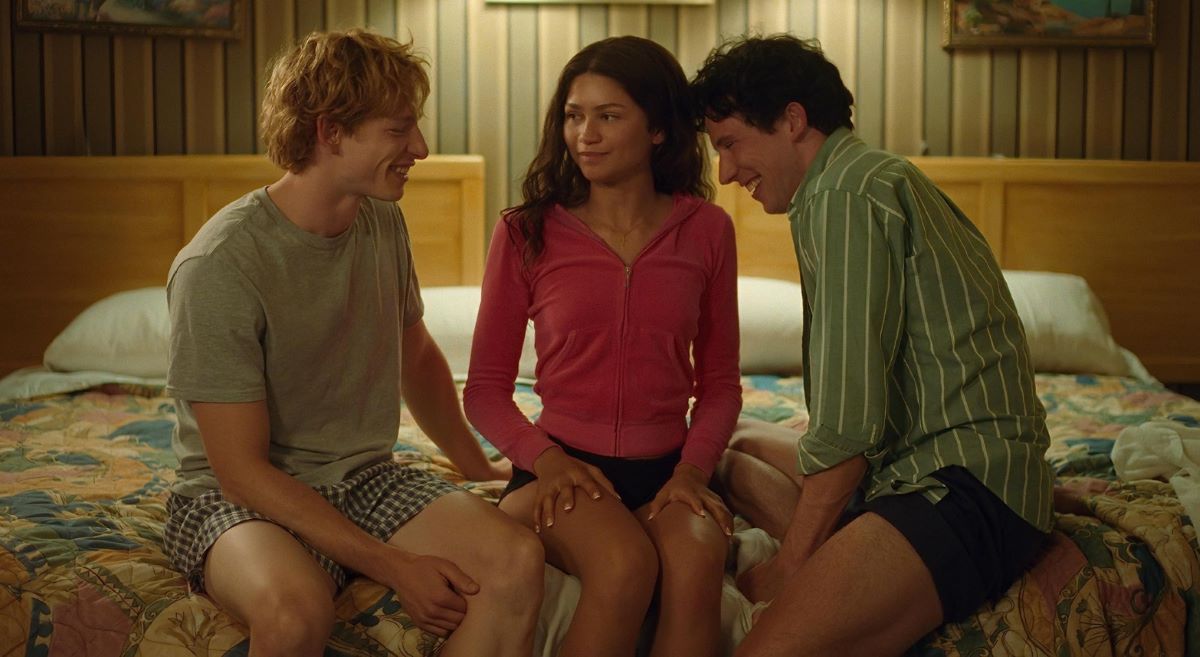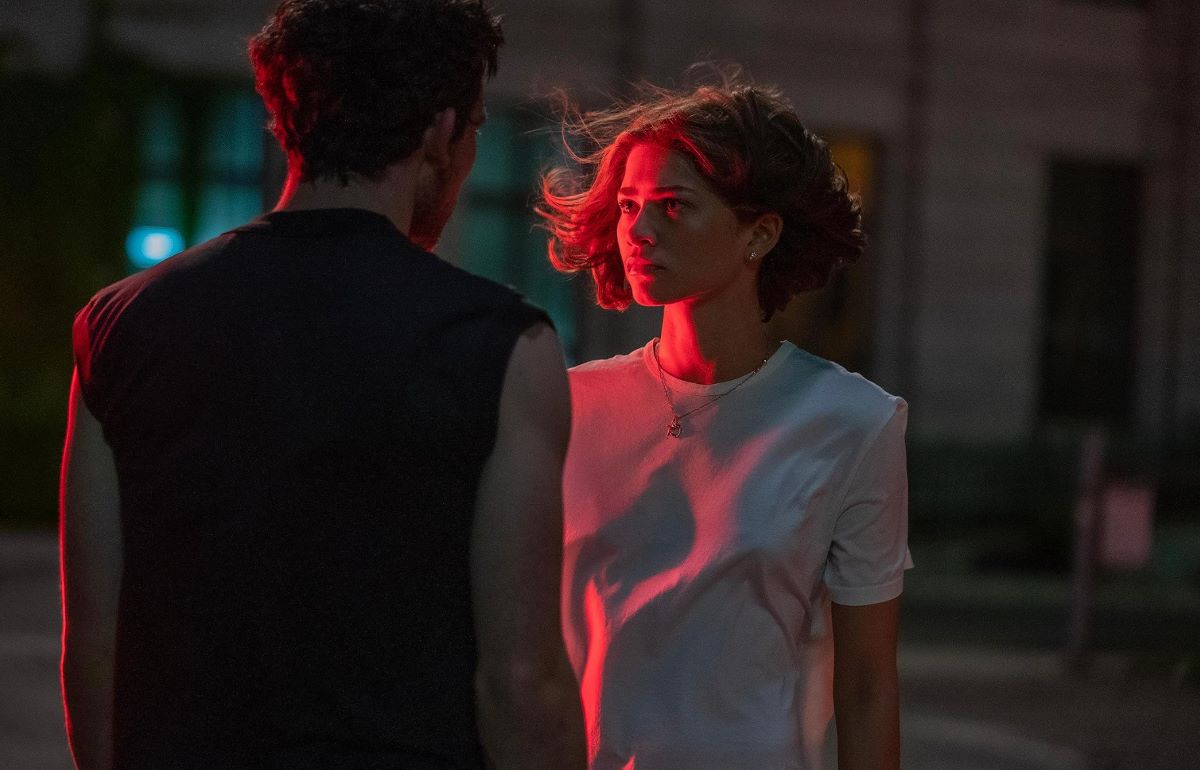Challengers (2024)
Directed by Luca Guadagnino
Luca Guadagnino’s melodramatic love triangle reveals the limitless possibilities hidden within the confines of a tennis court: Zendaya’s star has never shone as brightly as it does this time. A captivating film, hitting theaters on April 24.
Tennis can be played by two or at most four people. When there are three, there’s little to do; either you don’t play, or you take turns.
Selected by Venice 2023 as the opening film, then canceled due to the American actors’ strike, Luca Guadagnino‘s Challengers finally makes its way to theaters (from April 24, with Warner Bros.), and it’s an overwhelming landing: the present of the story is in August 2019, on a fast court where the two contenders, the challengers – indeed – are playing the final of an unnamed challenger in New Rochelle, New York.
On one side is the blond, washed-out Art Donaldson (Mike Faist), on the other, the darker, more unkempt, Patrick Zweig (Josh O’Connor). In the stands, in a central position, ideally separating the court just like the net divides the two opponents, is the impeccable and seemingly impassive, beautiful and elegant, Tashi Duncan (Zendaya).

The nature of this melodramatic triangle, which leaves one breathless like an endless rally back and forth across the net, will become clear as we go along.
Guadagnino handles with audacious formal lightness the (first) golden screenplay by Justin Kuritzkes (husband of Celine Song, celebrated for Past Lives, a playwright who has then adapted Queer by William S. Burroughs for the Italian director, a film in contention for the next Exhibition), supports the exceptional editing work by Marco Costa, and elevates the already exhilarating musical contribution of Trent Reznor & Atticus Ross (a partnership renewed after Bones and All), transforming that relentless electro-beat (the seductive hypnosis peaks with L’oeuf, a track used as a link in some phases of the story) into a further scenic body capable not only of emphasizing but of exacerbating the numerous crescendos of the various dialectical clashes/meetings between the protagonists, and related narrative turns.
That beginning match thrown in our faces at the start of the film – the close-ups on the sweat drops, on the grips, those balls thrown with vehemence that almost hit us full in the face – is nothing but the end of a journey that begins 13 years earlier: 2006, Art and Patrick triumph in a doubles match, they are inseparable friends, ready to challenge each other in a singles match that seems to matter more to one than to the other.
At that moment in their lives, the very promising Tashi Duncan, a sensational promise of college tennis, bursts in with force. The approach is tripartite, but the phone number will only be given to the one who wins that match: “I’m not a home wrecker,” after all.
Thus, Challengers continues to form/dissolve within a construction that is a relentless rebound between past (distant/recent) and present, with the pace of the last challenge being a further, fluctuating metaphor for the whole story/life: Guadagnino’s sentimental/existential ménage à trois is not just a simple nod to the most obvious cinematic references (Jules and Jim, The Dreamers, and many others that may come to mind), no, it is rather a paradigm of the infinite possibilities hidden as much in the relationships between people (Art and Patrick from inseparable friends will end up losing and hating each other) as in the finiteness of the playing rectangle.
The challengers of the title will understand – sooner or later – that they are nothing more than two actors directed by a single director: “Are we talking about tennis?” – “What else should we be talking about?”
Zendaya – whose star, however huge, has never really shone as much as this time – is the deus ex machina that undoes and (perhaps) reassembles, is the highly launched tennis player who, just short of turning pro, breaks her knee and, in order not to leave tennis, rediscovers herself as a coach: after all, she had already been a coach since she was a girl, but Patrick considered her a “peer”.
It will be the much more docile Art – madly in love with her – who builds a top career under her guidance, the guidance of a coach-wife forced to stifle her own ambitions and instead control the life of another (from herself).
The director of Call Me by Your Name and Suspiria (returning to direct an original subject since 2009’s I Am Love) takes the inherent conflict of a sport like tennis to the extreme, transporting it outside of the match and pouring it into the dialogues of his characters, captured in different fragments of their lives.
Then, inevitably, we return to the court, to the end, to the today of that August 2019 — how wonderful that nighttime scene outside the hotel during the storm, which anticipates the finale… — where two tennis players (one internationally recognized, the other unknown even to the most avid tennis fan) now in the twilight of their careers must determine, once and for all, who is the better of the two.
Unless that imperceptible signal, that code that harks back to a past life, starts everything all over again… To strike at the center, to strike at the heart. Not only with the racket.
Valerio Sammarco
Cinematografo, April 12, 2024





